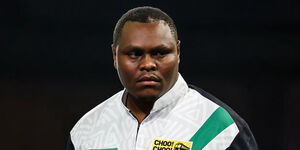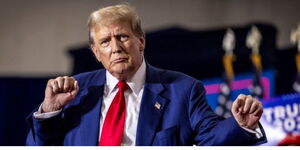Police spokesman Charles Owino on Wednesday, November 11, reiterated that the police body would not release the names of the police officers who had been caught on video assaulting students at the Jomo Kenyatta University of Agriculture and Technology (JKUAT)
Speaking on Citizen TV, Owino stated that the police had managed to narrow down on three suspects who were already interdicted, but argued that owing to their previous service for the country, they would keep their identity private until the investigations are complete.
He told the panelists during the Day Break morning programme that he had his own convictions and reasons that prevented him from allowing the names and photos of the officers released to the public.
"We tend to have a very difficult society at times. If these officers will ever go to court, their names and pictures will come out, but if we do it now, the families of the police officers are going to suffer intense trauma," Owino claimed.
He defended his convictions, stating that he felt the measures that had been taken by the force were enough at the time until investigations were complete.
"At times, we feel that unless very necessary, what matters more is the action that we have undertaken. Two mistakes don't make a right, so we felt preliminarily, that we should hold the names."
The police spokesperson further narrated that some of the police officers had done good things in the past and that the Independent Policing Oversight Authority (IPOA) also needed time to verify if the claims levelled against the officers were not with malicious intent.
Owino was then put to task over what was referred to as double standards, where the police release pictures of suspected criminals but they would not apply the same to the police who had been caught in the wrong.
He jumped to the defense of the police service, stating that it was not a good idea to compare police officers to criminals given the police had a record of having performed good deeds for the society.
"You see, security agents are not ordinary the way you want to take it. Security agents have done many other things, and they, therefore, cannot be treated like any other criminal," Owino concluded.












